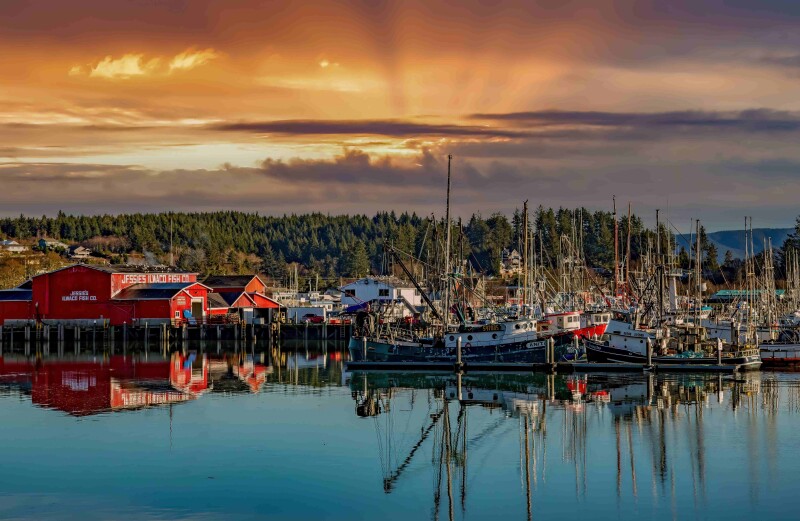In a move that has sent shockwaves through the fishing industry and beyond, recent layoffs at the National Oceanic and Atmospheric Administration (NOAA) are raising alarms about the future of U.S. fisheries and the broader maritime community.
Experts and industry leaders warn about the critical infrastructure needed to protect coastal communities. As the $320 billion fishing industry, which supports millions of American jobs, faces these setbacks, many question the long-term ramifications of the reduced NOAA workforce.
The layoffs affected hundreds of NOAA employees across various divisions and have resulted in the loss of critical expertise in fishery stock assessments, management, and regulatory processes. Former NOAA Administrator Richard Spinrad expressed deep concerns over the layoffs, particularly the loss of scientists and other personnel vital to the agency’s efforts in monitoring fish populations and ensuring sustainable harvests, according to Seafood Source.
According to Spinrad, the layoffs threaten the stability of the U.S. fishing industry, which relies heavily on NOAA’s data for regulatory decisions and stock assessments. Without these crucial services, the ability to accurately gauge fish populations, set catch limits, and protect the sustainability of fisheries is severely compromised.
Spinrad went so far as to highlight that the fishing industry could face widespread instability without the agency’s support. He explained that NOAA’s responsibilities, ranging from stock assessments to regulatory oversight, are pivotal to the long-term health of U.S. fisheries. With the layoffs, the risk is that data and management processes could be disrupted, leading to a lack of adequate oversight and overfishing.
Immediate fishery science and data collection impacts
The fallout from the layoffs is being felt in regions across the United States, but the effects are especially pronounced in New England and the Pacific Northwest, according to the Cape Cod Times.
In Massachusetts, the Woods Hole facility, a key NOAA research hub, was hit particularly hard. Sarah Cierpich, a fisheries management specialist, was among those laid off. Her work, which involved overseeing NOAA’s observer deployment systems, was crucial for collecting accurate data on marine life and ensuring the sustainability of commercial fisheries. Observers play a critical role in monitoring fishing practices, ensuring that catch limits are adhered to, and providing essential data for stock assessments.
Elizabeth Etrie, director of ocean policy at the Conservation Law Foundation, emphasized the importance of this data, warning that the loss of such expertise could lead to greater uncertainty in fishery management. She noted in the Cape Cod Times that the data collected by these observers helps inform vital decisions regarding catch limits and conservation measures. Without reliable data, fisheries could be subjected to unsustainable practices, leading to depleted fish stocks and long-term economic harm for coastal communities.
Broader implications for fisheries
The impact of these layoffs is not just an academic concern, it’s a practical one that will affect the livelihoods of fishermen across the country.
Eric Hansen, a former fishing captain and owner of two scallop boats, expressed his worry to Ben Berke of The Public’s Radio that many in the fishing industry may not yet realize the full extent of the damage caused by these layoffs. He pointed to the critical role NOAA scientists played in rebuilding the scallop fishery in the 1990s. This collaborative effort relied on both scientists and fishermen working together to revitalize the industry. Hansen fears that without this kind of partnership, the fishing industry may struggle to recover from future setbacks.
As the layoffs continue to unfold, experts warn that stricter catch limits could soon follow due to less reliable data on fish populations. The reduction in NOAA’s ability to carry out surveys means that fishery managers may have to rely on outdated or incomplete data, which could lead to overly cautious or incorrect catch limits. Seafood source reports that this, in turn, could hurt fishermen who are already facing challenges from rising operational costs and climate change.
Effects on salmon populations and hatcheries
The Pacific Northwest, home to some of the country’s most iconic fisheries, is also seeing the consequences of the NOAA layoffs. In Washington, the layoffs have impacted salmon hatchery operations, which are crucial for maintaining salmon populations that support both commercial and recreational fishing. With the loss of experienced personnel, including those responsible for managing hatchery operations and monitoring salmon populations, there is a growing concern about the future of salmon stocks.
Salmon populations in Washington are already under stress due to environmental factors, including warming ocean waters and habitat degradation. The layoffs are adding another layer of vulnerability to an already fragile ecosystem. Rep. Val Hoyle of Oregon pointed out, as reported by Sentient, that the loss of employees’ knowledge about critical technology, such as tsunami warning systems, could have serious repercussions not only for fish populations but also for public safety in coastal communities.
Steaming ahead
With a second wave of layoffs expected, environmental advocates and lawmakers alike are sounding the alarm about the long-term implications for U.S. fisheries. According to Sentient, Rep. Seth Magaziner of Rhode Island criticizes the administration’s approach to the layoffs, calling it “misleading and outright dangerous” given the far-reaching consequences for public safety and marine life. He argued that these cuts are detrimental to fisheries and could exacerbate the challenges posed by climate change, particularly in vulnerable regions like New England and the Pacific Northwest.
Industry leaders are calling for a reevaluation of the current approach of cuts. The layoffs at NOAA have jeopardized the agency’s ability to carry out essential scientific surveys and regulatory functions. If the cuts continue, there are fears that U.S. fisheries may not be able to recover from the ensuing instability, risking not only the livelihoods of fishermen but also the health of the marine ecosystems that provide food and economic support to millions of Americans.







